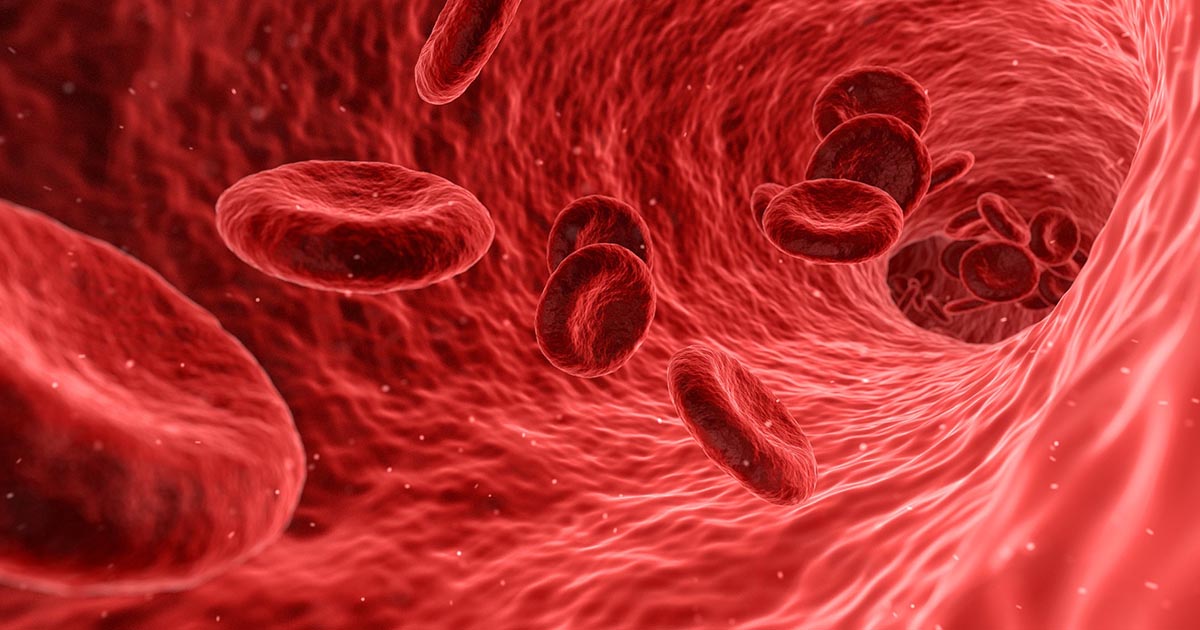
What is iron deficiency anemia?
Iron is important for many functions in the body, especially for the transport of oxygen in the blood. Iron deficiency anemia occurs when there is not enough iron to make the hemoglobin in red blood cells. The main causes of iron deficiency anemia in adults are bleeding and conditions that block iron absorption in the intestines. A person with anemia has a decreased number of red blood cells (RBC).
What are the symptoms?
Symptoms of iron deficiency vary from person to person. Some people with iron deficiency have no physical symptoms. Iron deficiency can cause symptoms even in the absence of anemia. Common symptoms include:
- Headache
- Weakness
- Brittle nails
- Restless legs
- Irritability
- Fatigue
- Sore tongue
- Craving to eat ice or non-food items
What causes iron deficiency?
Acute blood loss can occur with a severe injury, but more commonly the blood loss is slow and chronic from menstrual bleeding or gastrointestinal (GI) bleeding and ulcers. Some forms of cancer can also cause blood loss or impair the production of blood cells that carry iron.
Normally, the body absorbs iron from food through the GI tract. If the GI tract is not functioning correctly, due to conditions like celiac disease, autoimmune gastritis, other forms of stomach inflammation, or weight loss surgery (such as gastric bypass), an inadequate amount of iron may be absorbed, leading to iron deficiency anemia.
Pregnant and postpartum women may develop iron deficiency anemia because of blood loss at the time of delivery and because of increased iron requirements of the growing fetus and placenta.
In developed countries a much less common cause of iron deficiency anemia is a lack of foods that contain iron. This might occur when people are following very restrictive diets or when an eating disorder is present.
How do I know if I have an iron deficiency?
Your healthcare provider orders blood tests to diagnose iron deficiency. The most common test ordered will be a Complete Blood Count (CBC). This test will provide information about your blood cells number, size, and characteristics, as well as information about your hematocrit and hemoglobin. Your healthcare provider might also order more specific blood tests such as Serum Iron Level, to measure how much iron is circulating in your blood and a ferritin level, to measure proteins that store iron in the liver and spleen. Certain foods and supplements can alter the results of these tests, so it’s important to follow your healthcare provider’s instructions for these tests.
How can I treat iron deficiency?
Since iron deficiency can often indicate a serious underlying health condition, such as colon cancer, it is very important to identify the source of iron loss. Finding and treating the cause will prevent the continued loss of iron. Your healthcare provider may ask questions about the following situations, which can increase the risk of developing iron deficiency anemia:
- For women, history of abnormal uterine bleeding, pregnancies, or deliveries
- GI problems such as ulcers, Helicobacter pylori infection, autoimmune gastritis, or celiac disease
- Surgery on the GI tract (gastric bypass for weight loss)
- Family or personal history of bleeding disorders
- Family or personal history of colon cancer
- Multiple blood donations
- Use of medications that irritate the GI tract, such as non-steroidal anti-inflammatory drugs
- Symptoms of GI bleeding such as dark black, tarry stools; abdominal pain; or visible bleeding
How do I bring my iron level back to normal?
The treatment for iron deficiency is to give your body more iron. Iron supplements may be taken orally or given intravenously. It is important that you have the proper blood work taken and a full medical exam before considering iron replacement. Having too much iron in your body can also cause serious health problems. Oral and IV iron supplements should be used only under the strict guidance of your healthcare provider.
Oral iron tablets can be used in most people with iron deficiency. However, oral iron often has side effects such as constipation, nausea, cramping, metallic taste, upset stomach, dark-colored stools, and vomiting.
Intravenous iron can be used for people whose GI tract is unable to adequately absorb iron or, more commonly, in those who are unable to tolerate oral iron side effects.
Oral iron tablets
Oral iron tablets are usually a safe, inexpensive, and effective treatment for people with iron deficiency. Oral Iron is best absorbed if it is taken every other day, so it’s important to keep track of your medication schedule.
For proper absorption, Iron tablets should not be taken with food, certain antibiotics, tea, coffee, calcium supplements, or milk. Iron should be taken one hour before or two hours after these items. If you take antacids, your iron tablets should be taken two hours before or four hours after the antacids. Taking vitamin C or orange juice with your oral iron tablets will help enhance iron absorption.
There are several types of oral iron, and they are all equally effective. The one expectation is enteric-coated (EC) iron tablets, which are not recommended because iron is best absorbed from the duodenum and jejunum (the first and middle parts of the small intestine). EC iron releases iron further down in the intestinal tract, where it is not as well absorbed.
Oral iron is recommended for as long as it takes for your iron levels to return to normal. For most people this takes about six months on oral medication.
Intravenous (IV) iron
Intravenous iron is infused into a vein. This is done in a health care provider's office or hospital, where you can be monitored. The length of time required for the infusion and the number of infusions needed depend on which intravenous iron product is used and the severity of iron deficiency.
Intravenous iron is the best treatment option for people who cannot tolerate the side effects of oral iron or people whose GI tract cannot absorb an adequate amount of iron from pills (e.g., inflammatory bowel disease, kidney disease, and after bariatric surgery). IV iron is also a good option for people that just want a simpler treatment solution, since you will not have to worry about what food and drink you can or cannot have or keep track of an every-other-day pill schedule.
However, this form of treatment is not without risk. There is a small possibility of severe anaphylactic reaction to IV iron replacement treatments; about one of every 200,000 persons encounters this. To reduce the possibility of an allergic reaction, it is very important that you share all of your medical history with the healthcare provider administering this treatment. More common adverse effects of IV iron replacement include: injection site reactions, bruising, or mild allergic reactions, temporary flushing, back pain, and other muscle symptoms that usually go away when the infusion is slowed or stopped. Some patients with a history of rheumatoid arthritis may have an arthritis flare, which can be reduced or prevented by a short course of steroids.
Can’t I just change my diet?
Yes, and you should. But, for people with iron deficiency anemia, a change in diet is not enough to replace the iron that has been lost. In a typical 2000-calorie diet there is about 10 mg of elemental iron, compared to 65 mg in one 325 mg ferrous sulfate tablet. Therefore, increasing dietary iron alone is not recommended as a treatment for iron deficiency.
Dietary iron is found in meat, grains, fruits, and vegetables. In developed countries, iron is also added to many foods like cereals. For people who do not eat meat, iron can be found in whole or enriched breads or grains, iron-fortified cereals, legumes, green leafy vegetables, dried fruits, soy products, blackstrap molasses, bulgur, and wheat germ. To maximize absorption, iron-rich foods should not be consumed with coffee or tea. Taking vitamin C or drinking orange juice with high iron foods can further enhance absorption.
Can I prevent future iron deficiency?
People who have resolved an iron deficiency anemia are at an increased risk for developing it again. Your healthcare provider might recommend that you have blood tests on a regular basis to monitor the iron in your body. They might also recommend that you take iron supplements to maintain the body's iron stores. However, it is important that you only take iron supplements as directed by your healthcare provider. Having too much iron in your body (iron overload) can also cause serious and potentially life threatening problems. Unnecessary iron supplements will also interfere with your healthcare provider's ability to identify actual iron deficiency in your body’s cells, which may be a sign of another serious illness. Most men and postmenopausal women do not need continual supplemental iron unless they have an underlying illness that reduces iron absorption or causes bleeding.
Contact us
Are you in the San Francisco Bay Area? Book an appointment with one of our skilled physicians to learn more and develop a treatment plan that is right for your goals, budget, and timeframe. See appointments or call us at 415-409-3456.

